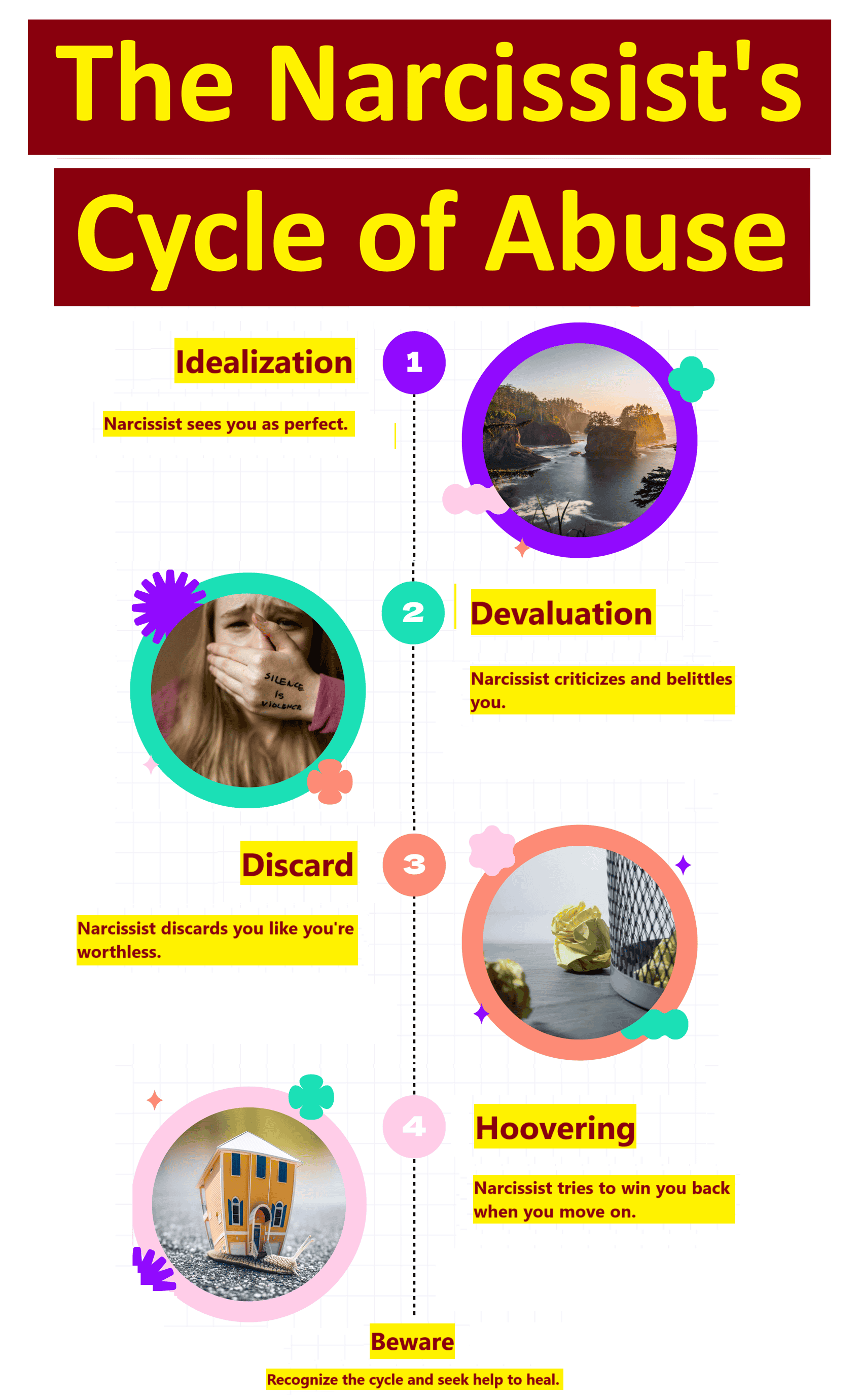Narcissists have a unique way of twisting conversations, making you question your own sanity. Engaging with them can feel like trying to catch the wind. But why is it such a waste of time?
Narcissists exhibit specific traits that make productive arguments near impossible. Here are some key characteristics:
- Grandiosity: Narcissists view themselves as superior to others. They exaggerate achievements and expect recognition without commensurate accomplishments.
- Need for Admiration: Constantly craving admiration, narcissists manipulate situations to ensure they remain the center of attention.
- Lack of Empathy: Inability to understand or share others’ feelings makes narcissists dismissive of your perspective in any debate.
- Manipulative Behavior: Skilled at manipulating conversations, narcissists twist facts and manipulate emotions to maintain control.
- Arrogance: Their arrogance and haughty behaviors are evident in interactions, making respectful dialogue difficult.
Recognizing these traits reinforces the understanding that arguing with a narcissist is indeed a waste of time.
Reasons Why Arguing With a Narcissist Is Futile
1. They Rarely Admit Wrongdoing
Narcissists almost never acknowledge their mistakes. Since they crave perfection, admitting fault damages their self-image. Even when concrete evidence points to their error, they twist facts to avoid taking the blame.
2. Lack of Empathy
Narcissists cannot genuinely understand others’ emotions. Their lack of empathy makes it impossible for them to relate to your feelings. This detachment prevents them from engaging in meaningful conversations, leading to futile arguments.
3. Turning the Blame Around
Narcissists deflect responsibility by turning the blame on you. When confronted, they manipulate the conversation to make you seem at fault. This tactic prevents any productive outcome, leaving you frustrated.
4. Their Need for Superiority
To maintain an aura of superiority, narcissists dominate conversations. They belittle others to elevate themselves. This need to feel superior undermines any chance of a balanced discussion.
5. Manipulation Tactics
Narcissists use various manipulation tactics like gaslighting and guilt-tripping. These methods distort your perception of reality, making you doubt yourself. Engaging in arguments only amplifies their control over you.
6. Emotional Drain
Debating with a narcissist drains you emotionally. They exploit your emotional energy to maintain their dominance. Over time, this constant drain can severely impact your mental health.
7. They Do Not Respect Boundaries
Narcissists routinely ignore personal boundaries. They feel entitled to invade your personal space and demand attention. This lack of respect makes constructive arguments impossible, as they fail to acknowledge your limits.
8. Unwillingness to Change
Narcissists rarely show a willingness to change. Their rigid personalities resist any form of self-improvement. This unwillingness ensures that arguments remain unresolved, repeating the same patterns.
9. Focus on Winning, Not Resolution
In arguments, narcissists aim to win, not resolve issues. Their primary goal is to assert dominance, not to find common ground. This focus on victory makes debates unproductive and one-sided.
Communication Barriers
Communication with a narcissist presents several challenges due to their inherent traits. They often dominate conversations, leaving little room for your input.
This monopolization creates a one-sided dialogue where your thoughts and feelings are dismissed. They also use deflection, shifting blame or changing the subject to avoid accountability. You’re left frustrated, having achieved nothing productive.
Conflict Escalation
Arguments with narcissists escalate quickly. They employ aggressive tactics like yelling, insulting, or belittling to overpower you. Their goal isn’t resolution; it’s to ‘win’ at all costs.
This escalatory behavior drains your energy and leaves you feeling demoralized. By engaging, you’re essentially feeding their need for control and dominance.
How to Manage Interactions With Narcissists
Setting Firm Boundaries
Establish clear guidelines on acceptable behavior. Firm boundaries help protect your emotional well-being and deter manipulative tactics.
For instance, limit interaction time and avoid personal topics. Consistency is key because narcissists will test limits.
Avoiding Engagement in Arguments
Bypassing arguments saves you time and stress. Narcissists thrive on conflict, so disengage by saying, “I don’t want to discuss this now,” and change the topic. If they push, stay calm and repeat your stance. Walking away can also defuse tension.
Seeking Professional Advice
Consult mental health professionals for strategies in dealing with narcissistic behavior. Therapists can offer personalized advice and coping mechanisms. Group therapy or support groups provide shared experiences and additional techniques for managing interactions.
Final Thoughts
Arguing with a narcissist often feels like running on a treadmill—it’s exhausting and gets you nowhere. Their manipulative tactics and relentless need for dominance make meaningful dialogue nearly impossible.
Instead of getting trapped in futile disputes, focus on protecting your mental and emotional well-being. Set firm boundaries and avoid getting drawn into their games. Remember, seeking professional advice can provide valuable coping mechanisms and support.
Prioritize your peace over winning an argument that’s designed to be unwinnable. Understanding these dynamics empowers you to make healthier choices in your interactions.



